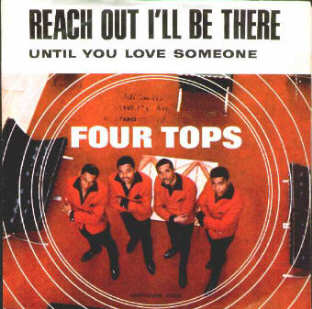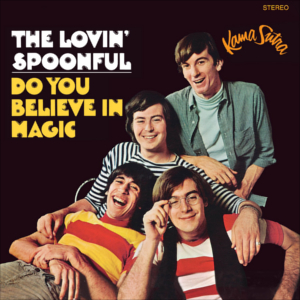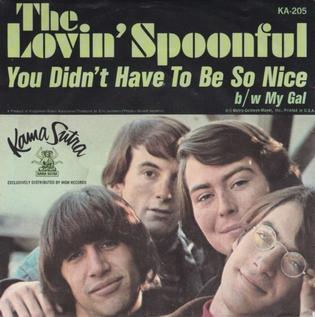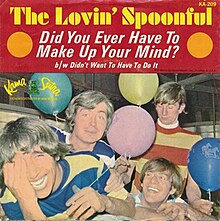
Zalman Yanovsky was a Canadian folk-rock musician. Born in Toronto, he was the son of political cartoonist Avrom Yanovsky and teacher Nechama Yanovsky, who died in 1958. He played lead guitar and sang for the Lovin' Spoonful, a rock band which he founded with John Sebastian in 1964. He was inducted into the Canadian Music Hall of Fame in 1996. He was also inducted into the Rock and Roll Hall of Fame in 2000 as a member of the Lovin’ Spoonful. He was married to actress Jackie Burroughs, with whom he had one daughter, Zoe.

The Lovin' Spoonful is an American folk-rock band formed in Greenwich Village, New York City, in 1964. The band was among the most popular groups in the United States for a short period in the mid-1960s and their music and image influenced many of the contemporary rock acts of their era. Beginning in July 1965 with their debut single "Do You Believe in Magic", the band had seven consecutive singles reach the Top Ten of the U.S. charts in the eighteen months that followed, including the number-two hits "Daydream" and "Did You Ever Have to Make Up Your Mind?" and the chart-topping "Summer in the City".

"Reach Out I'll Be There" (also formatted as "Reach Out (I'll Be There)") is a song recorded by the Four Tops from their fourth studio album Reach Out (1967). Written and produced by Motown's main production team, Holland–Dozier–Holland, the song is one of the most widely-known Motown hits of the 1960s and is today considered the Four Tops' signature song.

"Do You Believe in Magic" is a song by American rock band the Lovin' Spoonful, written by John Sebastian in 1965. The single peaked at number 9 on the Billboard Hot 100 chart. In 1978, Shaun Cassidy reached the Top 40 with his cover version.

Daydream is the second album by the Lovin' Spoonful, released in 1966. It features two hits, "Daydream", which reached No. 2 in the U.S. Billboard Top 40 charts, and "You Didn't Have to Be So Nice".

Do You Believe in Magic is the debut album by the folk rock group the Lovin' Spoonful. It was released in the United States in November 1965, on the Kama Sutra label. Release in the United Kingdom followed in March 1966. The album features the hits "Do You Believe in Magic" and "Did You Ever Have to Make Up Your Mind?".

"Summer in the City" is a song by the American folk-rock band the Lovin' Spoonful. Written by John Sebastian, Mark Sebastian and Steve Boone, the song was released as a non-album single in July 1966 and was included on the album Hums of the Lovin' Spoonful later that year. The single was the Lovin' Spoonful's fifth to break the top ten in the United States and their only to reach number one. A departure from the band's lighter sound, the recording features a harder rock style. The lyrics differ from most songs about the summer by lamenting the heat, contrasting the unpleasant warmth and noise of the daytime with the relief offered by the cool night, which allows for the nightlife to begin.

Hums of the Lovin' Spoonful is the third studio album by the American folk rock band the Lovin' Spoonful. It was released in November 1966 by Kama Sutra Records. It peaked at No. 14 on the Billboard Pop Albums chart.

"Welcome Back" is a popular record that was the theme song of the 1970s American television sitcom Welcome Back, Kotter. Written and recorded by former Lovin' Spoonful frontman John Sebastian, it reached No. 1 on the Billboard Hot 100 chart for one week in May 1976 after only five weeks on the chart, and also topped the adult contemporary chart. It also reached No. 93 on the country chart.

The Best of the Lovin' Spoonful is a 1967 compilation album by the Lovin' Spoonful featuring hits and other tracks from their first three albums. It charted the highest of the group's career, hitting number three on the Billboard Top LPs chart.

"You Didn't Have to Be So Nice" is a song by the American folk-rock band the Lovin' Spoonful. Written by John Sebastian and Steve Boone, it was issued on a non-album single in November 1965. The song was the Lovin' Spoonful's second-consecutive single to enter the top ten in the United States, peaking at number ten. It was later included on the band's second album, Daydream, released in March 1966.

"Younger Girl" is a song written by John Sebastian and originally recorded by his band, the Lovin' Spoonful, for their 1965 debut album Do You Believe in Magic. The tune and lyric are based upon "Prison Wall Blues" (1930) by Cannon's Jug Stompers.
"Good Time Music" is a song originally recorded by the American folk-rock band the Lovin' Spoonful in 1965. Written by John Sebastian, it appeared on the 1966 Elektra Records compilation What's Shakin'. Author Richie Unterberger characterizes the song as "a sort of manifesto of the group's optimism in its jaunty rhythms and celebration of the return of good time music to the radio."

"Daydream" is a song by the American folk-rock band the Lovin' Spoonful. Written by John Sebastian, it was issued as a single in February 1966 and was the title track of the band's second album, Daydream, released the following month. The song was the Lovin' Spoonful's third consecutive single to enter the top ten in the United States, and it was their best performing to that point, reaching number two. The single's European release coincided with a British and Swedish promotional tour, leading the song to be the band's first major hit outside North America. It topped sales charts in Canada and Sweden, and it was ultimately the band's most successful record in the United Kingdom, where it reached number two.

"Darling Be Home Soon" is a song written by John Sebastian of the Lovin' Spoonful for the soundtrack of the 1966 Francis Ford Coppola film You're a Big Boy Now. It appeared on the Lovin' Spoonful's 1967 soundtrack album You're a Big Boy Now. Sebastian performed his composition at Woodstock; it was the fourth song out of the five he performed at the 1969 music festival in White Lake, New York.

Revelation: Revolution '69 is the fifth and final studio album by the Lovin' Spoonful, released in late 1968.

"Nashville Cats" is a song by the American folk-rock band the Lovin' Spoonful. Written by John Sebastian, the song appeared on the band's 1966 album Hums of the Lovin' Spoonful, and it was also issued on a single released the same day as the album. The single peaked at number eight on the Billboard Hot 100 chart, marking the seventh and final time the band reached the American Top Ten.
This is the discography of American folk group Peter, Paul and Mary.

The Lovin' Spoonful is an American folk-rock band which was originally active between 1964 and 1968. During their original tenure, they released five studio albums, two soundtrack albums, four compilation albums, and fourteen singles in the United States. Between October 1965 and January 1967, their first-seven singles reached the Top Ten in the United States on Billboard magazine's Hot 100 chart, and the magazine's 1966 end-of-year issue ranked the group as that year's third-best-performing singles artist, after the Beatles and the Rolling Stones. Though the Lovin' Spoonful achieved success during the transition to the album era, they and their label remained focused on the singles market; the group's 1966 album Daydream was their only studio album to break the Top Ten of the Billboard Top LPs chart, and its performance was bested only by a 1967 compilation album, The Best of the Lovin' Spoonful, which RIAA certified for gold that year. The Lovin' Spoonful saw diminished success in 1967, when only two of their singles entered the top twenty in the U.S. Following further chart disappointments, the group disbanded in 1968.

"Rain on the Roof" is a song by the American folk-rock band the Lovin' Spoonful. Written by John Sebastian, the song was released as a single in October 1966 and was included on the album Hums of the Lovin' Spoonful the following month. The song reached number ten on the Billboard Hot 100 chart, making it the Lovin' Spoonful's sixth-consecutive single to reach the top ten in the United States.


















